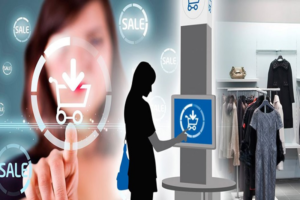
As technology is becoming a major competitive differentiator, retailers should look to complement traditional ways of customer interaction rather than completely replacing them to provide a successful omnichannel experience, says leading data and analytics company GlobalData.
Technology has transformed how retailers operate, connect with and provide services to customers. Retailers are integrating customer records, interaction details and metadata to understand customers’ psyche and identify issues that prevent them from completing purchases.
Retailers are increasingly looking to deploy artificial intelligence (AI), mobile apps, chatbots, digital assistants, predictive analytics and interactive in-store kiosks not only to achieve better customer interaction and loyalty but also to save costs.
Andreas Olah, Digital Retail Analyst at GlobalData, comments: “AI enables retailers to automate various manual processes and reduce the incidence of human errors. It can be deployed across retail operations including customer service, supply chain management, or for customer behavior analytics.
“Deploying interactive self-service kiosks and customer service robots can improve the customer experience but technology does not fully replace the human element, which remains important for creating a pleasant shopping experience. Moreover, interactive tools such as retail chatbots still need to hand over more complex cases to human agents if they cannot solve tasks independently.
“Seamless combination of channels is the key to success because customers expect the same level of service from online platforms, mobile apps, in-store kiosks and human sales assistants. They should not be pressurized into using the more cost-efficient digital channels, but need to be encouraged by providing them with value while maintaining the ability to speak to store staff if required.”
In addition, despite all the hype and enthusiasm for more sophisticated apps and chatbot-fueled customer services, the challenges faced by various retailers can differ greatly.
Fashion retailers are more likely to promote personal styles and brand identity, whereas generalist retailers and those selling standard goods such as groceries and even consumer electronics focus more on product information and practicalities such as tracking deliveries and easy returns of any faulty items.
Retailers’ various challenges – such as the need to profile customers, achieve greater personalization, understand market trends and improve operational efficiency – can be addressed through AI and analytics. Some retailers will take it as far as operating checkout-free stores or becoming online pure players, while others will create differentiated shopping experiences with a strong brand identity and a loyal customer base.
This is where technology vendors and system integrators come into the picture to shore up retailers to overcome their challenges. “Finding the right solution for more advanced and innovative retailers can be daunting and requires more sophisticated analytics and benchmarking against competitors, for which consultants with retail expertise are needed. Our survey of retail decision-makers has found that differentiation by vertical is as important as technology leadership and financial stability when choosing IT solutions vendors,” concludes Olah.



















